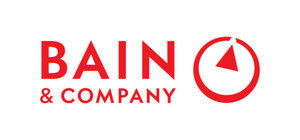New research shows how leading companies are applying a social lens to strengthen their businesses while creating value for employees, customers, suppliers, local communities, and society at large
NEW YORK, June 27, 2023 /PRNewswire/ -- Expectations about the role of business in society are changing dramatically. The impact of business on the environment is of vital importance to many corporate constituencies. Today, however, many more purely social concerns are coming strongly to the fore. And CEOs are playing close attention.
A Bain & Company survey of nearly 300 global CEOs reveals that 85% of business leaders view social issues as "urgent" concerns for their companies. When asked about the primary role of their business, 60% said either creating "positive outcomes for society" or "balancing the needs of all stakeholders."
"The companies that lead on social issues, such as DEI and socially responsible supply chain practices, don't view these efforts solely as risk mitigation," said Karthik Venkataraman, a partner in Bain's Diversity, Equity, & Inclusion practice. "It's the opposite, in fact. The leaders in this space have found ways to directly tie their social efforts to the commercial logic of their businesses, opening new opportunities for value creation by better serving all of their stakeholders. They see a symbiotic relationship between the concepts of 'doing well' and 'doing good.'"
One of the most influential stakeholder groups in the charge for change: customers. Customers have made it clear that they care about the social ramifications of their brand and product choices. A Bain survey found that half of consumers globally say they are more likely to buy from a brand that commits to combatting racism, and more than half are more likely to buy from a brand that commits to human rights. Regionally, 82% of consumers in Europe, the Middle East, and Africa are more likely to recommend a brand after learning it supports a social cause, and 86% of consumers in Latin America say it is very important that companies contribute to improving society. In the US, a third of Gen Z consumers say they would boycott a brand with bad labor practices.
The executives Bain surveyed said social performance drives business outcomes in several ways. A self-assessment of executives at companies who lead on social issues perceive their companies to have higher revenue growth and EBIT growth than their peers who lag on social issues. They also perceived their companies to have better results in attracting customers and talent as well as raising capital.
"When it comes to engaging in social issues, the challenge for many executives lies in figuring out how exactly to transform action on these issues into economically sustainable business performance," said Jenny Davis-Peccoud, a partner at Bain and global head of the firm's Sustainability & Responsibility practice. "The 'S' in ESG comprises a wide range of issues, which vary by organization. We recommend starting with a focus on four critical groups of stakeholders—local communities, customers, employees, and suppliers—and identifying actions that both address social issues for these groups and deliver results for the business."
Bain's study explores four areas of opportunity to translate action on social issues into economically sustainable business performance:
- Improving social and economic conditions in local communities. Communities where companies operate are increasingly critical stakeholders for business. Some companies are looking at these stakeholders through a social lens and discovering how to materially improve conditions in their communities in ways that boost business performance.
- Identifying new sources of customer value. Applying a social lens to customers and markets can reveal opportunities to create value for whole new customer segments, including in underserved markets.
- Investing in the current and future workforces. Given the challenges companies now face in attracting and retaining the right talent, businesses can shift from being "talent takers" to "talent makers" by investing in employee learning and development.
- Enhancing supply chain resilience by building socially responsible supplier relationships. By examining their supply chains through a social lens, companies can work effectively with suppliers to ensure fair and equitable practices while also making their end-to-end supply chains more resilient.
Editor's Note: For more information or interview requests please contact Katie Ware at [email protected] or +1 646 562 8107.
About Bain & Company
Bain & Company is a global consultancy that helps the world's most ambitious change makers define the future.
Across 65 cities in 40 countries, we work alongside our clients as one team with a shared ambition to achieve extraordinary results, outperform the competition, and redefine industries. We complement our tailored, integrated expertise with a vibrant ecosystem of digital innovators to deliver better, faster, and more enduring outcomes. Our 10-year commitment to invest more than $1 billion in pro bono services brings our talent, expertise, and insight to organizations tackling today's urgent challenges in education, racial equity, social justice, economic development, and the environment. We earned a platinum rating from EcoVadis, the leading platform for environmental, social, and ethical performance ratings for global supply chains, putting us in the top 1% of all companies. Since our founding in 1973, we have measured our success by the success of our clients, and we proudly maintain the highest level of client advocacy in the industry.
SOURCE Bain & Company

WANT YOUR COMPANY'S NEWS FEATURED ON PRNEWSWIRE.COM?
Newsrooms &
Influencers
Digital Media
Outlets
Journalists
Opted In




Share this article